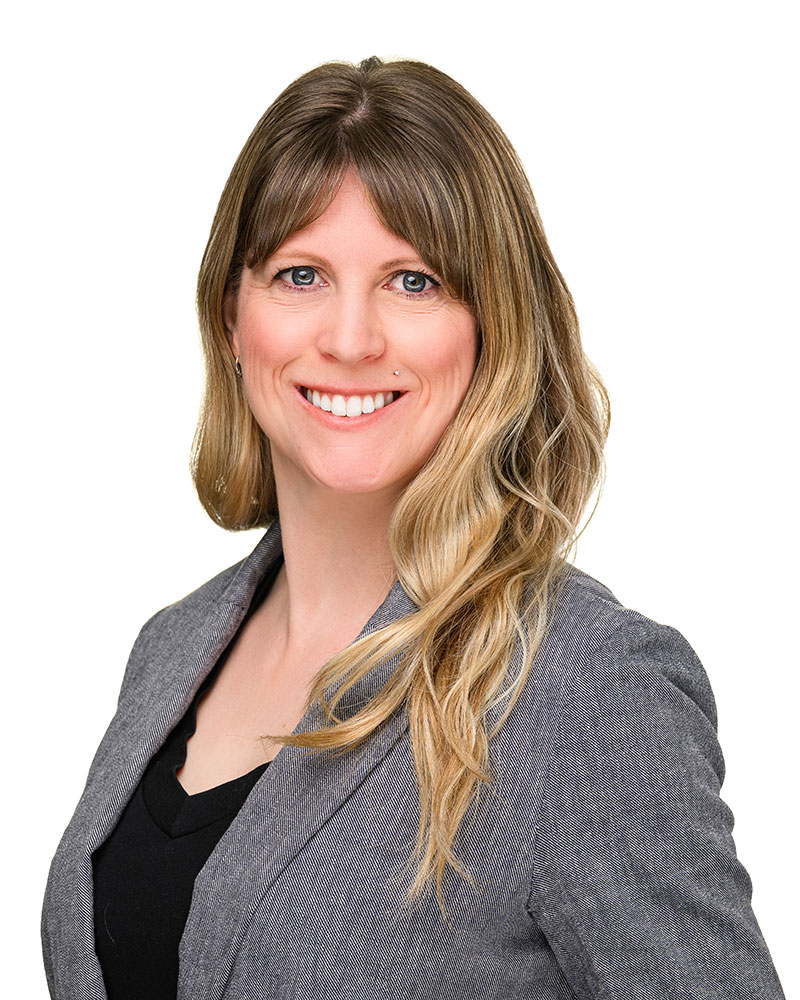Alicia Fairweather
Certified Canadian Counsellor, M.A. in Counselling
Client Focus: Adults and Teens (13 +)
Types of therapy: Cognitive Behavioural Therapy (CBT), Attachment Informed Therapy,
Boundary Informed Therapy, Mindfulness Techniques, Faith Based Counselling
How would you explain your style and approach to therapy when working with clients?
Issues I commonly work with include: stress, anxiety, depression, grief, loss of identity, and struggles in relationships. The atmosphere I strive to create in my counselling sessions is one of warmth, compassion, and authenticity. I also provide faith-based counselling services for clients seeking therapy from a Christian worldview.
I often draw upon Cognitive Behavioral Therapy (CBT), to help my clients explore what is just outside of conscious awareness; to discover what internal beliefs are running in the background and how these may be contributing to patterns of behaviour that are misaligned with their values or are affecting their self-perceptions. Many people begin the therapeutic journey from a position of feeling driven by thoughts or emotions; becoming observers of our thoughts and emotions allows us to separate ourselves from our reactions, which over time have often distilled into a form of autopilot. Deepened awareness is a gateway to greater autonomy and freedom to live authentically.
Accordingly, I often incorporate the science of mindfulness and what we know about the human stress response to help my clients develop their repertoire of tools that can help to calm anxiety and return to a state that allows access to their internal wisdom. I draw upon various theories, models, and bodies of research in my approach (e.g., attachment theory, polyvagal theory, research on trauma, adverse childhood experiences, etc.). Research in these areas indicates that these have profound effects on how we learn to relate to others beginning in childhood, and how the templates we form early in life about our place in the world influence how we think and behave in the present moment.
Through compassionate inquiry, we will safely explore the strategies you adopted to cope with life in your family of origin (however that looked). Sometimes we don’t realize where or why we struggle to set boundaries in work, family, social, and romantic relationships. I can help you learn to define and maintain healthy boundaries in your relationships. Developing or building upon these skills often allows us to feel more confident, less resentful, and better prepared to navigate difficult interactions with important people in our lives. Together, these approaches can help you to develop the internal resources needed to design the life you want, forge relationships that align with your values, and manage what life has asked of you with resilience.
What training and expertise do you bring to your sessions?
I obtained a Master of Counselling degree and have received additional training in suicide intervention and mental health first-aid (a program offered by the Canadian Mental Health Association). I have experience in individual and group work with people who struggle with depression and anxiety. I also love to present for businesses, organizations, schools and churches on topics such as attachment styles and how they influence relationships and the journey of grief and healing after significant loss.
Prior to becoming a counsellor, I spent a decade supporting students as an academic and life skills coach and continue to provide academic counselling and brain training for junior high to high school aged teens. Supporting students with unique learning profiles (Learning Disabilities, ADHD, Gifted) one-on-one ensures every child is given the opportunity to reach their academic potential. Academic counselling differs notably from tutoring in that tutors tend to focus on helping students with their current curricular content whereas an academic counsellor tends to help students develop their repertoire of learning strategies.
In the context of academic counselling, I help my students develop motivation for learning and skills for regulating their emotions, which enhances their preparedness to learn. I educate them on how their cognitive processing and executive functioning skills can be strengthened, so that learning disorders feel less disabling, wherever possible. Finally, I teach my students to advocate for themselves; they develop the confidence and competence to ask their educator for what they need – a skill that becomes increasingly important as students progress into the post-secondary realm.
Outside of your therapist role, what are some ways you express your uniqueness?
When spending time on my own, I look forward to building 1000-piece jigsaw puzzles while listening to audiobooks. When I feel like being social, I thoroughly enjoy taking my kids indoor-wall climbing or meeting with a friend for coffee.
My favorite quote is from Oscar Wilde “It is what you read when you don’t have to that determines what you will be when you can’t help it.” For that reason, I enjoy reading classic literature and historical fiction: these genres have taught me a lot about human nature and have helped me to become increasingly intentional about how I express my own humanity. My hope is to support you in doing same.




